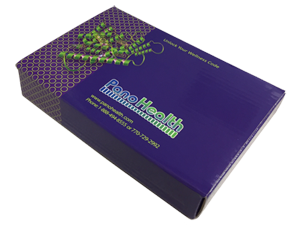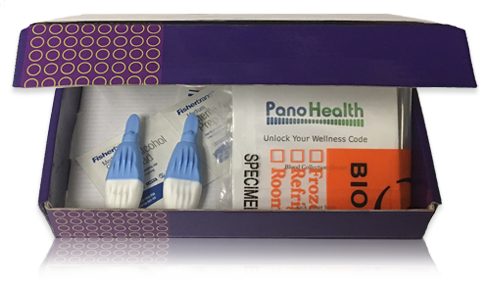Description
Track Your Performance: Whether you are an Olympic athlete or a weekend runner, your workout and training schedule should attempt to maximize your performance – helping you burn fat, build muscle, or increase your balance, strength, and overall fitness. Biomarker monitoring with PanoHealth can offer a comprehensive picture of your health status. Through understanding human physiology and the body’s ability to adapt to the stress of exercise training your biomarkers can indicate that you are getting the most out of your efforts, allowing you to change your performance from good to great.
20 Biomarkers Measured:
- Adiponectin (ACRP30)
Decreased levels indicate inadequate recovery and also poor performance level
Reference - CK-MB
Decreased activity of CKMB is associated with increases in performance along the test period
Reference 1 | Reference 2 | Reference 3 - CRP (C-Reactive Protein)
Short-term increase in levels after activity
Reference - Cardiac Troponin I (cTnI)
Increased levels after activity
Reference - D-Dimer
Inverse relationship with physical performance
Reference - Ferritin
Decreased levels over training period
Reference - Growth Hormone
Increased levels after activity
Reference - IGF-1
Decreased levels with training induced catabolism like in overtraining
Reference - IL-1 beta (IL-1 F2)
Brief (~24–48 h) increase in levels associated with performance deterioration
Reference - IL-6
Decreased levels with training induced catabolism like in overtraining
Reference - IL-8 (CXCL8)
Increased levels after activity
Reference - Insulin
Decreased levels with training induced catabolism like in overtraining
Reference - Leptin
Decreased levels with training induced catabolism like in overtraining
Reference - Myoglobin
Increased levels after activity; attenuating effects of muscle damage
Reference - Pro-BNP
Increased levels after activity
Reference - TNF RII (TNFRSF1B)
Inverse relationship with physical performance
Reference - TNF alpha
Postexercise increase in levels may indicate excessive training stress
Reference - Troponin T
Short-term increase in levels after activity
Reference - Skeletal Troponin I (sTnI)
Increased levels post sustained endurance exercise
Reference - MCP-1 (CCL2)
Short-term increase in levels after activity
Reference







